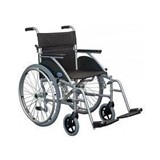But NPS warns that now is not the time to forget that pain relievers are medicines too, with both benefits and risks.
NPS clinical adviser Dr Danielle Stowasser says that people need to ensure they‘re taking pain relievers as safely as possible.
Pain relievers you buy over the counter in a pharmacy, supermarket or other store are generally safe to take, but there can be serious consequences if people pop the pills without thinking, says Dr Stowasser. Problems can happen if painkillers are not taken as directed, particularly if you take too much, if they interact with another medicine you take, or are used by people with certain health conditions.
Dr Stowasser says that it‘s important for people to always read the packaging of their medicine and follow the instructions for taking it, including how much to take (the dose) and how often, and what the maximum recommended dose is per day.
One of the big misconceptions is that taking more than the recommended dose means the medicine will be more effective — but in fact, it could do your body some serious damage,? says Dr Stowasser. For example paracetamol, the active ingredient in many common pain reliever brands, can cause liver damage and even death if you take more than the recommended dose.
Other pain-relieving active ingredients such as aspirin and other NSAIDs (such as ibuprofen) can also cause side effects, some of them serious, especially in people with particular pre-existing conditions or who take certain medicines.
Dr Stowasser says that anyone with questions or concerns about their pain relief medicine should check with their doctor or pharmacist about which pain reliever is safest for them.
When you seek medical advice, make sure you tell your pharmacist or doctor about any of your other prescription and over-the-counter medicines, including any other pain relievers you may be taking as well as any complementary medicines such as herbal preparations, as these are medicines too and so also have risks and benefits like any other medicine, says Dr Stowasser.
For more information about using pain relievers, visit http://www.nps.org.au/bemedicinewise/managing_pain



